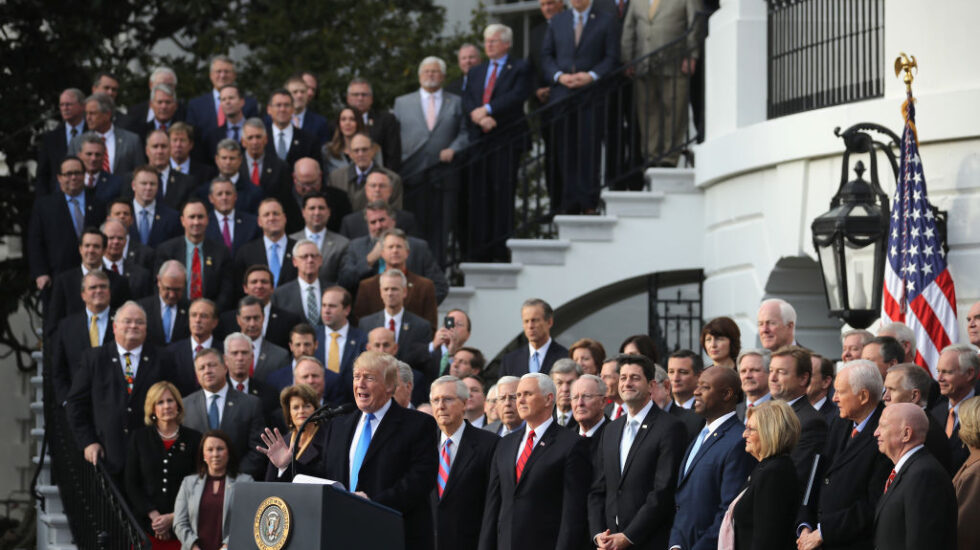More than a few people believe that America’s richest people have a cheat code that helps them crack the dense tax code and avoid paying their fair share of taxable income. Back in June, there was a report that showed some of the richest men in the U.S., including Jeff Bezos, Warren Buffett and Michael Bloomberg, managed to use loopholes to avoid paying federal income tax in some years.
Well, the news site ProPropublica may have just discovered that the real secret. The site just published a story based on analysis of a stash of secret IRS tax files that indicates some of the richest people in the U.S. used their financial influence to have former President Donald Trump’s 2017 tax legislation tailored to benefit them.
How much money are we talking about in avoided tax payments? We’re talking about billions of dollars.
This latest examination shows that the process for “gaming the system” begins much earlier than tax-filing season; it starts during the time when the legislation is being put together.
Back in late 2017 as the Trump White House was trying to ram through its massive tax cut bill ahead of the midterm elections, Wisconsin Senator Ron Johnson emerged as a potential obstacle. The reason Johnson gave publicly for his opposition to the bill as it was then written, was that it didn’t help small businesses enough. To get his vote, the bill would need to boost the tax break for types of companies that are known as pass-throughs, since profits pass through to their owners. The vast majority of pass-through companies are small businesses.
The bill was adjusted to give Johnson what he wanted and the bill of course, passed, with the Trump Administration boasting that its new law provided necessary tax relief for small business owners. Except those business owners aren’t the ones who actually gained the most from the tax cuts.
From ProPublica:
Confidential tax records, however, reveal that Johnson’s last-minute maneuver benefited two families more than almost any others in the country — both worth billions and both among the senator’s biggest donors.
Dick and Liz Uihlein of packaging giant Uline, along with roofing magnate Diane Hendricks, together had contributed around $20 million to groups backing Johnson’s 2016 reelection campaign.
The expanded tax break Johnson muscled through netted them $215 million in deductions in 2018 alone, drastically reducing the income they owed taxes on. At that rate, the cut could deliver more than half a billion in tax savings for Hendricks and the Uihleins over its eight-year life.
The writing of Trump’s tax law provides an opportunity to see how deep-pocketed political donors — the richest of the rich — can lobby politicians to manipulate the tax code to their benefits so they can avoid paying the percentage of taxes that the average American must hand over each year. It certainly didn’t hurt that the bill was crafted largely under a cloud of secrecy and rushed through the legislative process.
More detail from ProPublica:
In the first year after Trump signed the legislation, just 82 ultrawealthy households collectively walked away with more than $1 billion in total savings, an analysis of confidential tax records shows. Republican and Democratic tycoons alike saw their tax bills chopped by tens of millions, among them: media magnate and former Democratic presidential candidate Michael Bloomberg; the Bechtel family, owners of the engineering firm that bears their name; and the heirs of the late Houston pipeline billionaire Dan Duncan.
When asked if he discussed elements of the tax bill with the Uihleins and Hendricks, Senator Johnson responded with a statement saying he wanted to redraw and simplify the tax code.
“My support for ‘pass-through’ entities — that represent over 90% of all businesses — was guided by the necessity to keep them competitive with C-corporations and had nothing to do with any donor or discussions with them.”



